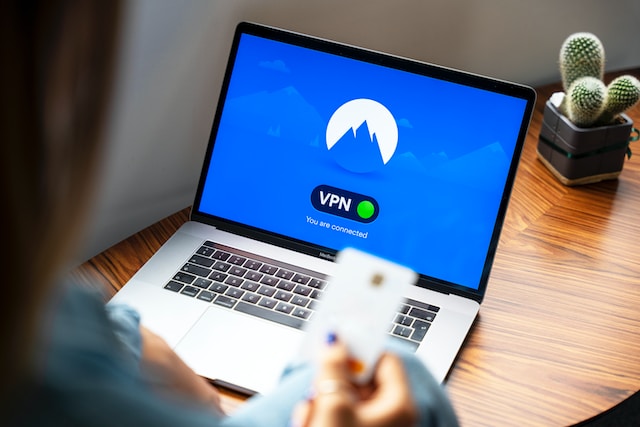
In today’s hyper-connected world, accessing the internet while on the go has become a necessity. Whether it’s at a coffee shop, airport, or hotel, public networks provide convenient internet access. However, using public Wi-Fi networks can expose your computer to various security risks. Cybercriminals often lurk on these networks, seeking to exploit vulnerabilities and steal sensitive information. To safeguard your computer and personal data, follow these essential tips for securing your device when using public networks.
Enable Firewall and Automatic Updates
The first essential step to fortifying your computer’s security when using public networks is to activate your firewall and enable automatic updates. A firewall acts as a digital barrier, inspecting incoming and outgoing network traffic and blocking unauthorized access. Most operating systems come with built-in firewalls that can be easily enabled in the system settings. By doing so, you create a vital defense against potential cyber threats seeking to exploit vulnerabilities in your system.
Alongside the firewall, automatic updates play a crucial role in bolstering your computer’s security. Software developers continuously release updates to patch known security flaws and improve system performance. Cybercriminals often target outdated software, taking advantage of these weaknesses to gain access to sensitive data or infect your device with malware. By allowing automatic updates, you ensure that your operating system and applications are equipped with the latest security patches, significantly reducing the risk of falling victim to cyberattacks. So, always stay proactive and enable these vital security features to protect your computer while navigating the digital landscape of public networks.
Utilize HTTPS and SSL
When connecting to websites on public networks, pay close attention to their security measures. Look for “https://” at the beginning of the URL, indicating a secure connection. Websites using HTTPS and SSL (Secure Sockets Layer) encryption provide an added layer of protection for your data. By encrypting the information transmitted between your computer and the website’s server, HTTPS ensures that sensitive data, such as login credentials and personal information, remains confidential. SSL certificates authenticate the website’s identity, reducing the risk of falling victim to phishing attacks or visiting malicious websites. Making a habit of checking for HTTPS ensures a safer browsing experience, guarding against potential data breaches and unauthorized access to your private information.
Be Cautious with Public Wi-Fi Networks
While public Wi-Fi networks offer convenience, exercising caution when connecting to them is crucial for safeguarding your computer’s security. Stick to networks provided by reputable establishments and avoid connecting to open or unsecured networks. Cybercriminals often set up rogue Wi-Fi hotspots with names similar to legitimate ones, luring unsuspecting users into connecting to them. This malicious tactic, known as “Wi-Fi spoofing,” allows attackers to intercept sensitive information transmitted over the network. Before connecting, verify the network’s name with staff or signage to ensure you are joining the legitimate network. By being cautious with public Wi-Fi networks, you can significantly reduce the risk of falling victim to such deceptive cyber schemes and protect your sensitive data from prying eyes. Consider using proxies to add an additional layer of security and anonymity when accessing public networks.
Use a VPN
To add an extra layer of protection when using public networks, consider employing a secure VPN (Virtual Private Network). A VPN encrypts your internet traffic, making it secure even on unsecured public networks. By connecting to a VPN server, your data becomes encrypted and indecipherable to potential eavesdroppers or cyber criminals.
Moreover, a VPN masks your IP address and location, ensuring your online activities remain private and anonymous. This makes it challenging for malicious actors to track your online behavior or launch targeted attacks. Whether you’re browsing the web, accessing confidential work documents, or communicating with others, a VPN shields your data from prying eyes and unauthorized access.
Disable Automatic Network Connection
A simple yet effective measure to enhance your computer’s security on public networks is to disable automatic network connection. Many devices come with a feature that automatically connects to known networks, including public Wi-Fi hotspots. While convenient, this automatic connection can be risky, as it may unknowingly connect you to a potentially malicious network. By turning off this feature and manually selecting networks, you gain more control over your connections, reducing the chances of falling prey to cyber threats and ensuring a safer online experience. Stay vigilant and take charge of your network connections to minimize potential risks while using public networks.
As the internet continues to play an integral role in our daily lives, securing our computers while using public networks becomes paramount. By enabling firewalls, keeping software up to date, and using HTTPS, you can significantly reduce the risk of falling victim to cyber threats. Remember to exercise caution with public Wi-Fi networks and avoid connecting to unsecured networks. For an added layer of protection, consider using a VPN to safeguard your data and maintain your online privacy. By following these precautions, you can surf the web with confidence, knowing that your computer and personal information are well-protected. Stay vigilant, stay secure!


